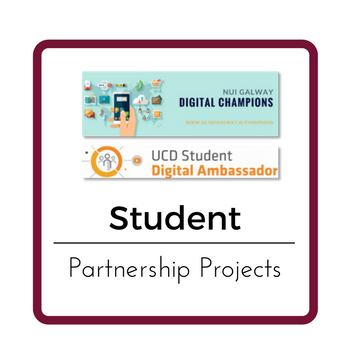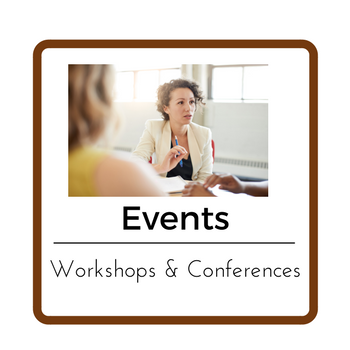Further information
About the project, our aims, and how you can participateOrigins and perspectives
Digital skills, literacies, and competences – there is no shortage of policy documents and well-publicised national aspirations (regardless of which nation you happen to be in!) in this space. But much of the focus tends to be on building up technical competence, tied to particular job responsibilities, or stage of education. Yet, of course, we are surrounded with technologies in almost every aspect of our everyday lives. In part, it frees us from past drudgery, whilst elsewhere it burdens us with new expectations and anxieties. How we live, work, and learn in a digital age is a crucial question.
When considering a response to three documents: Ireland’s National Digital Strategy; Digital Agenda for Europe (now the ‘Digital Single Market‘); and the Digital Roadmap for Irish Higher Education; we wondered whether it might be possible to try a slightly different approach to the more usual development of a competency framework, formal programmes and traditional skills qualifications. We sought, where possible, to explore aspects of ‘confidence’ (or the lack of it) in the use of technologies by everyone engaged in higher education (students, academic staff (faculty), technical, support, and administrative staff). We wanted to see what scope there might be to develop activities, events, campaigns, and to develop slightly more imaginative ways of raising the issue, whilst also encouraging participation and engagement.
Through workshops, discussions, literature reviews, questionnaires, and other information gathering, we pooled a variety of suggestions for areas of technology and technology use, as well as pedgagogical and learning design concerns. Trying to make sense of this range of ideas, we could see a natural ‘clustering’ into six broad domains and experimented with a number of possible visual representations. Our team member, Blaneth McSharry, took our original concept-map and transformed it into the Metro-Map infographic that now is the key hallmark and central metaphor for All Aboard. Other team members, Liz Dore and Aoife Geraghty completed a review of pre-existing frameworks that helped contextualise our approach. We would also like to acknowledge the influence of Helen Beetham’s work on the naming of the ‘Identity & Wellbeing’ line.
Following this, Blaneth McSharry, Jonathan Flynn, Yvonne Emmet, Michael O’Brien, and Gráinne McGrath worked on the production of multimedia, interactive lessons for many of the stations, with content provided from the wider project team, including, Aoife Geraghty, Gobnait O’Riordan, Áine Galvin, Leone Gately, Deirdre Ryan, Anne O’Keeffe, Gwen Moore, David Moloney, Sharon Flynn, Kate Molloy, and Iain MacLaren. We have also, actively promoted the use of digital badges across a wide range of academic and co-curricular activities.
Throughout the project, we have worked in partnership with students and student representatives on a range of activities and initiatives to promote engagement, cooperation and campaigning. We are grateful for their energy, enthusiasm, and creativity.
Our other activities
Click on the links below to find out more information about these key areas of activity and interest. You will also find example case studies and downloadable guides and resources.
How you can participate
In addition to following us on twitter (@allaboardhe), signing up for our email newsletter, or participating in workshops and events, you can also become part of the All Aboard community by contributing to the growth and development of our resources. From the outset of the project, we have always considered that we are a collegial, cooperative group of people. all of whom share a common interest in promoting greater confidence in the use of technologies in teaching and learning. We have purposefully developed a general ‘brand’ that is not tied to particular institutions, but rather should be thought of as ‘co-owned’ by everyone acrosss the sector.
Many of you will have expertise and experience in training and in developing training materials. We’d love to encourage you to consider helping to populate the metro, by providing relevant content for some of the stations, using our format (templates are available from us) for some consistency, but also linking to pre-existing materials where such are relevant and open. Ideas for badge criteria, resources for workshop training, and offering to issue the ‘practical skills’ level badges, are all welcome. Just get in touch!
Acknowledgements
We gratefully acknowledge all those who have contributed time, ideas, content and other support to the project. We hope that appropriate credit has been duly given within each of the lessons/content sections to those from whom we have sourced materials (eg re-mixed Creative Commons resources) and are happy to make any corrections that may be necessary. Many (if not most) of the photographic images which have been used on this site and in the lessons/content have been sourced from unsplash.com and are available under a Creative Commons CC0 licence. Other content which has been released under CC-BY variants should have credits attached or listed in acknowledgements sections. Some content has been purchased or used with formal permission.
All content developed by All Aboard is released under a CC BY-NC 4.0 International licence and attributed to ‘All Aboard’.




